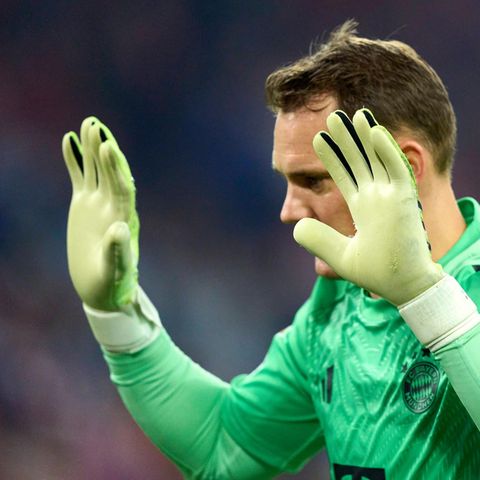Path to new elections
Struggle for a new election date in February or March
Copy the current link
The Union has realized that a new Bundestag election is not possible as quickly as it imagined. However, she does not want to go along with the SPD’s plan to hold elections until March if possible.
There is movement in the struggle for a date for the new Bundestag election after the failure of the traffic light coalition. The potential period now narrows to February or March. A new election as soon as possible in January is now off the table: To achieve this, Chancellor Olaf Scholz (SPD) – as originally requested by the Union – would have had to ask the Bundestag for a vote of confidence this Wednesday and request this 48 hours in advance. This deadline has already expired.
Union Chancellor candidate Friedrich Merz is now aiming for an early federal election in February. At the meeting of the CDU/CSU parliamentary group executive committee, the parliamentary group and CDU party leader mentioned February 16th or 23rd as a good date, as the German Press Agency learned from participants. The “Rheinische Post” (Tuesday) writes that Merz stated there that the election date of January 19th, which he had initially brought into play, was too ambitious.
The SPD is probably interested in voting only after the Hamburg election because it could expect tailwind for the federal government from its stronghold. Hamburg elects its citizens on March 2nd.
Scholz passed the question of the date on to parliamentary group leaders
Scholz originally wanted to ask the vote of confidence on January 15th in order to bring about a new election at the end of March. After strong public pressure, he appeared on Sunday on the ARD program “Caren Miosga” to be ready to ask the question of confidence before Christmas – if the parliamentary group leaders of the SPD and CDU/CSU, Rolf Mützenich and Friedrich Merz, reach an agreement on this.
The leadership of the Union faction insists that Scholz raise the vote of confidence this year. “It is the SPD’s turn to approach the Union with concrete proposals (on the schedule),” said the group. “Once this date has been set, discussions can begin in the Bundestag about any issues that still need to be addressed.”
With a view to the legislative proposals of the incumbent red-green minority government, according to information from the “Rheinische Post”, Merz once again emphasized to the parliamentary group executive committee that Scholz must first ask the question of confidence. His government no longer has a procedural majority. “The only thing left on the agenda is what we discussed together beforehand,” the paper quoted him as saying, according to participants.
FDP also for quick new elections
Like the Union, the FDP, which left the traffic light coalition, is also pushing for an election date as early as possible. “The most important thing is that the country will soon be in a position to make a directional decision,” said FDP General Secretary Bijan Djir-Sarai after his party’s executive committee meeting. Before making a decision on the election date, the FDP does not want to commit to supporting reform projects that have not yet been completed.
FDP parliamentary group leader Christian Dürr warned of the economic consequences of a delay. “If Olaf Scholz had his way, we wouldn’t have a new, functioning government until the summer of next year,” he told the dpa. “The vacuum into which Olaf Scholz has maneuvered the country is costing us jobs and prosperity every day.”
Federal Economics Minister Robert Habeck (Greens) rejected warnings from the FDP about a “hanging match”. “The FDP is really a quick-thinking party,” he said in Berlin. She was able to avoid a hung game last Wednesday. That day the coalition collapsed.
Criticism of the Federal Returning Officer
After consultation with the state election authorities, Federal Returning Officer Ruth Brand reinforced her recommendation not to set a new election date too early. “In order to best meet the challenges in electoral organization that arise from the deadlines for a new election, the period of 60 days (specified in the Basic Law) between the dissolution of the Bundestag and the new election should be exhausted,” she advised in a statement . The election management has already worked with the responsible federal, state and local authorities to take all organizational steps that are possible even without an election date.
This Tuesday, Brand is expected in the Bundestag’s election audit committee, which wants to discuss a new election date in a special meeting.
Brand came under criticism from the Union after she warned in a letter to the Chancellor of “unforeseeable risks” from an all-too-early election. CDU/CSU parliamentary secretary Patrick Schnieder (CDU) told the dpa that he expected her not to “allow herself to be harnessed to the Chancellor’s party-political cart.”
Government spokesman Steffen Hebestreit rejected Scholz’s accusation as absurd. He understands the opposition’s goal of getting new elections as quickly as possible. “And yet it has to be a proper choice. And you shouldn’t ignore too many clues on the way there,” he said.
Steinmeier postpones trip
Because of the unclear situation, Federal President Frank-Walter Steinmeier is postponing a trip to Saudi Arabia planned for next week. The Federal President’s Office said he wanted to have time to hold talks with political leaders in Berlin. The “Spiegel” first reported about it.
Steinmeier has a central role: If, as expected, Scholz does not receive a majority in the vote of confidence in the Bundestag, the Federal President can dissolve parliament within 21 days and call new elections. The election must then be made within 60 days.
Parties report new members
Secretary-General Djir-Sarai reported that after the traffic light was broken, the Liberals recorded around 1,300 new members joining. By the weekend there had been around 80 resignations. The number of FDP members had recently fallen to around 70,000. According to General Secretary Matthias Miersch, the SPD has registered more than 1,000 party memberships online since the traffic light crash last Wednesday.
dpa
Source: Stern
I have been working in the news industry for over 6 years, first as a reporter and now as an editor. I have covered politics extensively, and my work has appeared in major newspapers and online news outlets around the world. In addition to my writing, I also contribute regularly to 24 Hours World.




